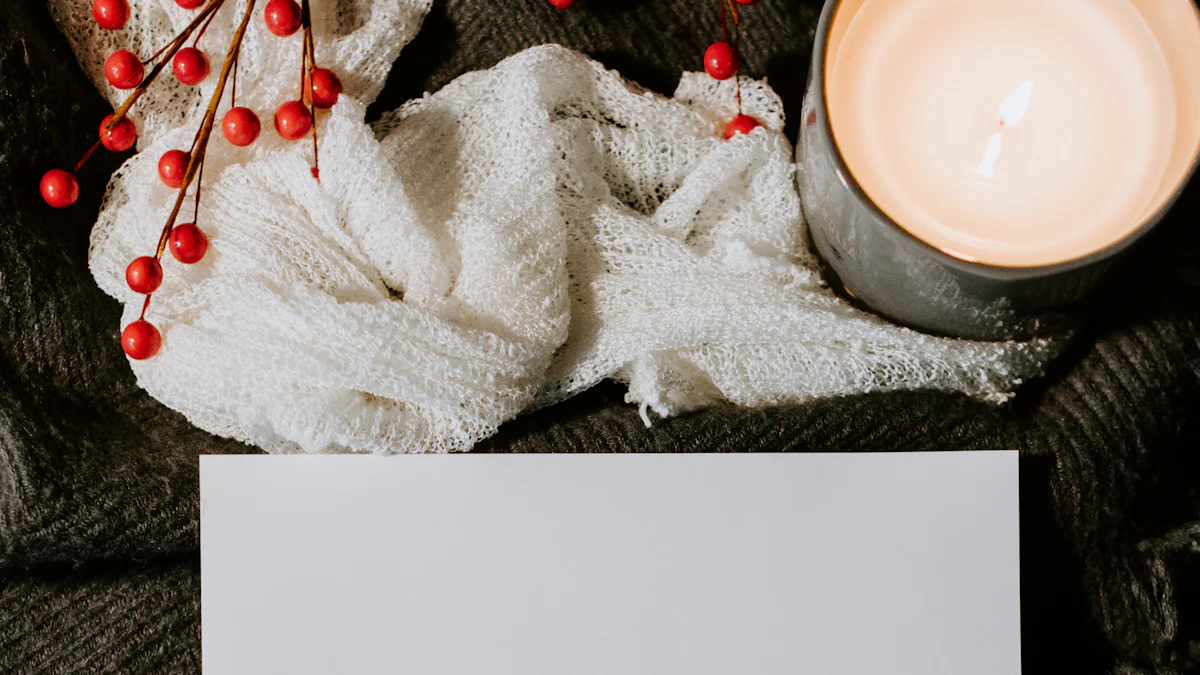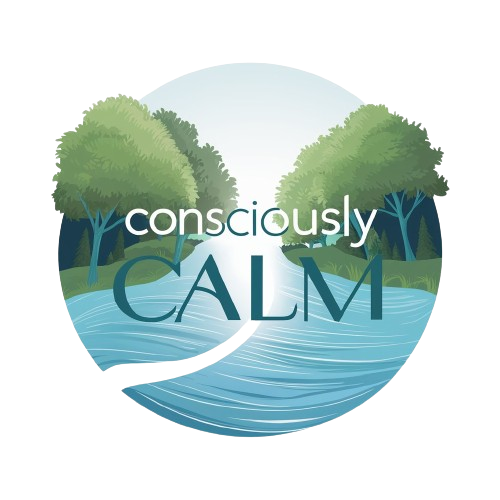10 Effective Techniques to Soothe Anxious Thoughts

Managing anxiety is essential for improving overall well-being. Anxiety disorders impact nearly 19.1% of U.S. adults each year, underscoring the importance of effective strategies. Learning how to have calmer thoughts can greatly enhance mental health. Practical techniques provide valuable tools to lessen the effects of anxiety. In our fast-paced world, anxiety affects millions worldwide, with a 15% rise in prevalence since 2005. Tackling anxiety enables individuals to live healthier, more balanced lives. Embracing these techniques builds resilience and encourages a positive mental state.
Lifestyle Changes
Reduce Caffeine Intake
Benefits of Reducing Caffeine
Caffeine often increases anxiety levels. Consuming high doses, especially above 400mg, raises the risk of anxiety. Reducing caffeine helps calm the mind and body. Lower caffeine intake can improve sleep quality. Better sleep reduces anxiety symptoms. A calmer mind leads to a more balanced life.
Alternatives to Caffeine
Many alternatives provide energy without increasing anxiety. Herbal teas like chamomile or peppermint offer soothing effects. Decaffeinated coffee provides a similar taste without the jitters. Green tea contains less caffeine and offers calming properties. These options help maintain energy levels while reducing anxiety risks.
How to Manage Caffeine Withdrawal
Gradual reduction helps manage caffeine withdrawal. Start by mixing regular coffee with decaf. Slowly increase the decaf ratio. Stay hydrated to combat withdrawal symptoms. Engage in physical activities to boost energy naturally. These steps ease the transition and reduce withdrawal effects.
Regular Exercise
Benefits of Physical Activity
Exercise plays a crucial role in reducing anxiety. Physical activity decreases stress hormones. Exercise distracts from anxious thoughts. Improved mood and increased endorphins result from regular workouts. Exercise promotes a sense of accomplishment and boosts self-esteem.
Types of Exercises to Consider
Various exercises suit different preferences. Aerobic activities like walking or cycling enhance cardiovascular health. Yoga combines physical movement with mindfulness. Strength training builds muscle and confidence. Choose activities that bring joy and relaxation.
How to Stay Motivated
Staying motivated ensures consistency. Set achievable goals to track progress. Find a workout buddy for accountability. Celebrate small victories to maintain enthusiasm. Create a routine that fits personal schedules. Motivation fuels success and encourages a healthier lifestyle.
Mindfulness and Relaxation Techniques

Meditation Practices
Benefits of Meditation
Meditation offers a path to tranquility. Regular practice helps you cultivate a peaceful mind. Meditation reduces stress and anxiety by promoting relaxation. Studies show that meditation enhances focus and emotional well-being. The practice encourages self-awareness and acceptance. Meditation provides tools for how to have calmer thoughts.
Simple Meditation Techniques
Starting meditation can be simple. Begin with focused breathing. Sit comfortably and close your eyes. Inhale deeply and exhale slowly. Concentrate on each breath. Use guided meditation apps for support. These apps offer step-by-step instructions. Practicing daily builds consistency.
How to Incorporate Meditation into Daily Life
Integrating meditation into daily routines requires commitment. Set aside a specific time each day. Morning meditation sets a positive tone. Evening sessions help unwind after a busy day. Create a peaceful environment. Use calming music or nature sounds. Consistent practice leads to how to have calmer thoughts.
Deep Breathing Techniques
Benefits of Deep Breathing
Deep breathing engages the parasympathetic nervous system. This system promotes relaxation and stress reduction. Breathing exercises lower heart rate and blood pressure. Regular practice improves mental clarity and focus. Deep breathing provides an immediate sense of calm. The technique is effective for how to have calmer thoughts.
Simple Breathing Exercises
Simple exercises make deep breathing accessible. Try the 4-7-8 technique. Inhale for four seconds. Hold the breath for seven seconds. Exhale slowly for eight seconds. Repeat this cycle several times. Practice belly breathing. Place a hand on your abdomen. Feel the rise and fall with each breath.
How to Use Breathing Techniques for Stress Management
Incorporating breathing techniques into daily life enhances stress management. Use deep breathing during stressful moments. Practice before important meetings or events. Breathing exercises provide a quick reset. Regular practice fosters resilience. You learn how to have calmer thoughts in challenging situations.
Cognitive and Behavioral Strategies
Cognitive Behavioral Therapy (CBT)
Benefits of CBT
Cognitive Behavioral Therapy (CBT) offers transformative benefits for managing anxiety. CBT helps you identify negative thought patterns. This therapy provides tools to challenge and change these thoughts. You gain skills to manage anxiety more effectively. Personal stories highlight the success of CBT in treating anxiety. These stories inspire hope and encourage action.
How CBT Can Help with Anxiety
CBT empowers you to take control of anxiety. You learn to recognize triggers and develop coping strategies. The therapy focuses on present issues rather than past experiences. You practice new ways of thinking and behaving. This approach reduces anxiety symptoms over time. CBT encourages a proactive mindset.
How to Find a Qualified Therapist
Finding a qualified therapist ensures effective treatment. Start by researching therapists with CBT expertise. Look for credentials and experience in anxiety management. Seek recommendations from trusted sources. Many therapists offer initial consultations. Use this opportunity to assess compatibility. A strong therapist-client relationship enhances therapy outcomes.
Journaling Techniques
Benefits of Journaling
Journaling serves as a powerful tool for mental health. Writing helps you express feelings and organize thoughts. Journaling channels emotions positively. Studies show that journaling reduces stress and anxiety. The practice promotes self-reflection and personal growth. Journaling encourages clarity and emotional release.
How to Start Journaling
Starting a journal requires commitment. Choose a notebook or digital platform. Set aside time each day for writing. Begin with simple prompts or free writing. Focus on thoughts, feelings, and experiences. Consistency builds a meaningful journaling habit. Journaling becomes a therapeutic outlet.
How to Use Journaling for Stress Management
Journaling aids in stress management. Use writing to explore stressors and solutions. Reflect on positive experiences and achievements. Track progress and set goals. Journaling provides insight into patterns and triggers. Regular practice fosters resilience and emotional balance. You gain a deeper understanding of yourself.
Professional Help and Support
Counseling and Therapy Options
Benefits of Counseling and Therapy
Counseling offers a safe space to explore feelings. Therapy provides tools to manage anxiety effectively. Professional guidance helps identify triggers. Therapists teach coping strategies for anxious thoughts. Counseling promotes emotional healing and personal growth. Therapy encourages self-awareness and resilience.
How to Find a Qualified Therapist
Research helps find a qualified therapist. Look for credentials in anxiety management. Online directories list licensed professionals. Seek recommendations from trusted sources. Initial consultations assess compatibility. A strong therapist-client relationship enhances therapy outcomes.
How to Choose the Right Therapist
Choosing the right therapist involves several steps. Consider the therapist's approach and expertise. Personal comfort with the therapist is crucial. Assess the therapist's experience with anxiety disorders. Evaluate communication style and availability. Trust your instincts when making a decision. The right therapist fosters a supportive environment.
Medication Options
Benefits of Medication
Medication can alleviate anxiety symptoms. Anti-anxiety drugs reduce physical symptoms like trembling. Antidepressants affect brain responses to stress. Medication complements therapy for holistic treatment. Proper use enhances quality of life. Medication provides relief and stability.
How to Choose the Right Medication
Consultation with a doctor determines the right medication. Doctors consider medical history and symptoms. Different medications suit different needs. Beta-blockers, benzodiazepines, and antidepressants are options. Regular follow-ups ensure effectiveness. Open communication with healthcare providers is essential.
How to Manage Side Effects
Managing side effects requires awareness. Common side effects include drowsiness and nausea. Report any adverse reactions to a doctor. Adjustments in dosage may be necessary. Lifestyle changes can mitigate side effects. Patience and persistence lead to successful management.
Managing anxiety remains crucial for a balanced life. You can explore various techniques to find what suits you best. Many people find relief through journaling, deep breathing, or cognitive behavioral therapy. Each method offers unique benefits. Professional help provides additional support when needed. Sharing experiences with others creates a supportive community. Personal stories inspire and encourage growth. You can build resilience and find peace in daily life. Embrace the journey towards calmer thoughts. Your well-being deserves attention and care.
See Also
Top Meditative Practices for a Relaxing Getaway
Effective Ways to Handle Stress through Relaxing Methods
Crafting a Soothing Morning Schedule for Improved Mental Health

